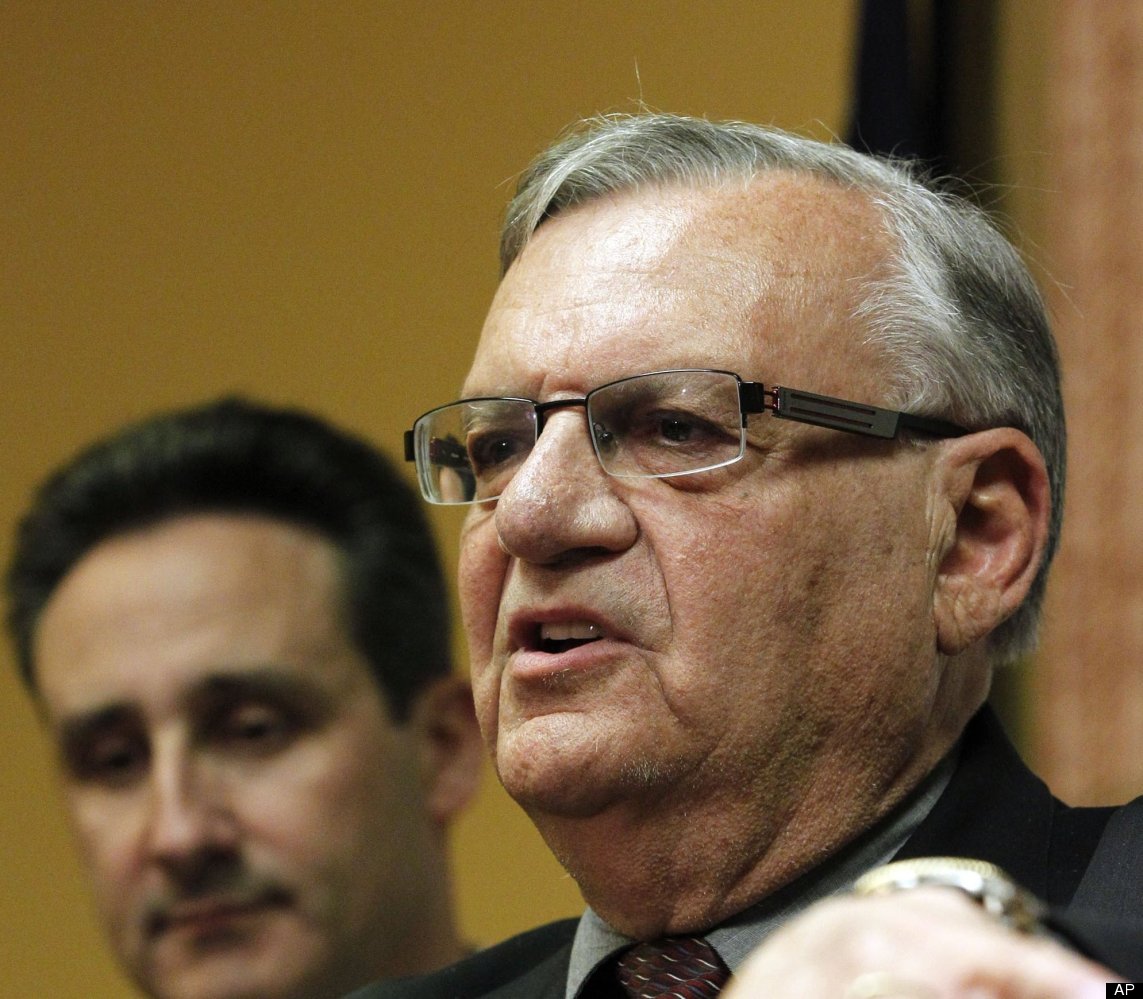When President Obama addressed the National Council of La Raza at its annual convention last summer, he laid out his efforts to enforce the nation's "flawed" immigration laws in a "humane" fashion, and then followed with what was supposed to be a laugh line: "Now, I know some people want me to bypass Congress and change the laws on my own --"
Before Obama could finish, someone shouted, "Yes you can." Soon, more than a dozen others joined the chorus to rhythmic applause. For a few seconds, the president said nothing. He offered a weak, irritated smile to this group of mostly Latino community organizers, civil rights activists, policy wonks and political operatives.
After campaigning on a
pledge to overhaul the nation's immigration system in the first year of his presidency, Obama not only failed to deliver on that promise. His administration also deported more undocumented immigrants than any other in U.S. history.
But the spontaneous outbursts from the civil rights group's convention audience proved prophetic, or perhaps instructive. This week, the Obama team initiated what some immigrant activists and Obama critics alike have called the most significant
change in the nation's immigration system in nearly 25 years. Across the country, as many as 1.7 million young undocumented immigrants, brought to the country illegally as children, were expected to apply for temporary, renewable immigration relief and work permits, according to
a Pew Hispanic Center analysis. The administration announced the deportation policy shift in June.
Why did Obama come around?
PRESSURING THE PRESIDENT
The White House insists that the deferred action directive is part of a long-running effort to operate an effective and efficient deportation apparatus while Congressional gridlock remains. After establishing deportation priorities and giving immigration enforcement field offices greater discretion about which undocumented immigrants to let go, officials discovered that low-risk undocumented immigrants continued to clog the system. This prompted the Obama team to settle on a
temporary, administrative solution, said a senior administration official, who spoke on condition of anonymity.
The deferred action directive eventually took shape thanks to a confluence of conditions, according to activists, undocumented immigrants, elected officials and political operatives contacted by The Huffington Post. These included the president's electoral concerns, the potent political threat embodied by outspoken Florida Tea Party Republican Sen. Marco Rubio and Obama's awareness of the ongoing suffering of undocumented immigrants in America.
Under the terms of what immigration officials have dubbed the
Deferred Action for Childhood Arrivals program, beginning this week, federal officials will consider applications that could grant certain young undocumented immigrants, sometimes referred to as Dreamers, renewable two-year deportation reprieves and a permit needed to work legally. In order to qualify, they must be 31 or younger, have arrived in the country before their 16th birthday and meet other education, military service and criminal record requirements.
Dreamers are young immigrants brought to the country illegally as children. The term is derived from the
Development, Relief, and Education for Alien Minors Act, a bill first introduced as the Dream Act in 2001 by Utah Republican Sen. Orrin Hatch. In most of its various forms the Dream Act has called for some sort of path to either legal immigrant status or citizenship and eligibility for in-state tuition rates, and in a few of the many attempts to get the bill passed since 2001, access to state financial aid.
If the
long lines and testimonials collected at application assistance clinics in Chicago, Miami, New York, Houston, Los Angeles and several other cities this week offer any indication, some Dreamers hope the program will help them to come out of the often-referenced shadows of American life. Many say they manage daily fears of deportation and pressure to stop attending school, and navigate
exploitative and illegal work and living conditions or
manipulative personal relationships.
Several people told The Huffington Post that pressure for immigration reform -- albeit sometimes low-volume -- has been applied to the Obama administration since he took office, by Sen. Dick Durbin, a Democrat from Illinois, New Jersey Democrat Sen. Robert Menendez and various organizations, including the American Immigration Lawyers Association, America's Voice and the Center for American Progress.
UPTICK IN DEPORTATIONS
It was a challenging time for the administration. Tea Party Republicans won so many House Seats in the November 2010 elections that any hope of comprehensive reform and pursuing many other priorities in the next session was dead. The election outcome and the short clock left on the lame duck session expanded the ranks of immigrant advocates ready to champion the Dream Act, said Rep. Luis Gutierrez, an Illinois Democrat. Until then, many of immigration reform's senior statesmen -- people connected to most of the nation's large Latinos civil rights and immigrant advocacy organizations -- had been fixated on more sweeping, comprehensive immigration reform, he said.
The next month,
the bill narrowly failed in a procedural vote. It died just 14 votes short.
A few days before Christmas, Gutierrez and other members of the Congressional Hispanic Caucus went to see the president. Gutierrez had already been arrested outside the White House protesting the absence of federal immigration reform and state-level attempts at immigration enforcement.
"When we left that meeting, the president said let's put on our thinking caps over the holidays and see what we can come up with," Gutierrez said.
The caucus decided to ask for administrative action that would protect the undocumented parents of U.S. citizen kids and Dreamers with a policy similar to the one that governs Cuban refugees who make it to U.S. shores. The relief that the caucus called for would be limited to people already inside the U.S. Earlier that year, a group of Dreamers had made a similar request of the president in a meeting with Valerie Jarrett, a senior advisor and assistant to the president for Public Engagement and Intergovernmental Affairs.
But, after the holidays, Obama made a series of
speeches declaring Congress had the sole authority to change immigration law and protect Dreamers. Reform advocates also were alarmed by a clear uptick in deportations.
The Department of Homeland Security's Immigration and Customs Enforcement Agency
annual deportation report revealed that in fiscal year 2010, ICE removed 392,862 undocumented immigrants from the United States, a nearly 50 percent spike from the last portion of the Bush administration in fiscal year 2008.
So in March 2011, when ICE Director John Morton began
issuing new orders in a series of
memos, immigrant advocates thought tangible relief was in sight, said Frank Sharry, executive director of America's Voice, an immigrant advocacy organization.
The Morton memos identified priorities. ICE agents were supposed to focus on detecting and deporting undocumented immigrant criminals, people who had recently entered the country without permission and those who had repeatedly done so. Morton directed agents to let people go if they met ICE's low-priority standards, such as those who have U.S. citizen children under 18 and have lived in the country for 10 years or more. They also included undocumented immigrants who have filed a labor or civil rights complaint -- a measure designed to provide due process to undocumented immigrants and to avoid creating a perverse incentive to exploit them.
"We thought this was going to be phenomenal," Sharry said.
Despite
objections by the ICE officer's union, as far as the administration was concerned, the Morton memos worked. In fiscal year 2011, the number of total deportations grew just slightly to 396,906 people, a 1 percent jump over the previous 12-month period. More criminals were being deported than ever before.
But included in that list of criminals deported were people caught driving without a license and apprehended for other minor offenses. Dreamers were getting deported in some cities and not in others, said Gutierrez. Easy-to-catch but low-risk undocumented immigrants -- mothers driving a few miles over the speed limit,
workers locked in disputes with bosses who refused to pay wages -- were still clogging the system.
'WE WERE ANGRY WITH OBAMA'
In November, Sharry, of America's Voice; Gaby Pacheco, a well-known Dreamer; and representatives from a number of immigrant advocacy, civil and labor rights groups gathered in Washington and concluded that prosecutorial discretion was a failure.
"There were people at that event who were incensed," Sharry said. "The president was either being deliberately mislead or he is choosing to be. Advocates and people like Dick Durbin were telling him what was happening and he was choosing to believe his bureaucrats."
DHS declined to comment on the claim. Durbin could not be reached for comment.
DHS had agreed in August to review a backlog of about 300,000 cases pending in immigration court (many of which were initiated during the Bush administration), but by early 2012, less than two percent were allowed to stay in the country as a result of the review, Sharry said.
DHS officials say that figure ultimately rose to about 9 percent, or 28,000 individuals, by the end of May.
Sharry and Pacheco; members of Congress such as Gutierrez, Menendez, Durbin and Senate Majority Leader Harry Reid (D-Nev.); and others continued a series of meetings with White House staff, including Jarrett and Cecilia Muñoz, a one-time National Council of La Raza staffer and now director of the White House Domestic Policy Council.
But immigrant advocates were worried about the effect of pushing Obama publicly on the contentious issue in the midst of his re-election campaign, Sharry said.
"Truthfully, we were angry with Obama but we're terrified of Romney," he said. "At this point he had pretty much emerged as the frontrunner and said that he would veto any Dream Act that reached his desk."
Many activists weren't sure what to do, Sharry said. America's Voice decided to lean on the administration publicly.
In the spring, Homeland Security Secretary Janet Napolitano raised the question of administrative relief with the White House, a senior administration official said on condition of anonymity. Napolitano had already asked her staff for a variety of options. She may have been prompted to do so because of a confrontational meeting she had with Congressional Democrats a few months earlier. Napolitano came prepared to talk budget. But, according to Gutierrez, the conversation quickly turned to stories of real people who were being deported although they met the government's low-priority criteria.
The White House began examining the law.
Just as the Obama team was digging into the idea of administrative action, Sen. Rubio, the Tea Party Republican from Florida, began floating a Dream Act-like proposal with reporters.
White House officials contacted Pacheco and members of the Congressional Hispanic Caucus. The message: Rubio should not be trusted, both Pacheco and Gutierrez said.
Rubio had no cosponsors, and no other Republican said publicly that they would support the bill. He had not even introduced it to the Senate. And, Rubio
drew a difficult-to-parse distinction. His bill would not prevent Dreamers from becoming citizens, but included no pathway to citizenship, either. Backing a Rubio bill might hurt the prospects of a far-reaching Dream Act in the future, Muñoz and Jarrett told activists.
"No one came right out and said don't work with Rubio, you're going to hurt us," Pacheco said. "It was a lot more subtle than that."
The White House and Sen. Reid, without question, worried that Rubio might swoop in and become the "white knight" of immigration reform, said Sharry.
Neither Rubio nor his staff responded to requests for comment.
Dream Activists outside Washington, meanwhile, hatched a pressure plan of their own.
On June 5, a group of Dreamers staged a sit-in protest inside an Obama for America office in Colorado. Within weeks, Dreamers who wanted to confront the administration in public ways staged sit-ins -- or attempts at sit-ins -- in Obama campaign offices in Ohio, Michigan, Georgia, California and North Carolina. The group was gearing up for sit-ins in swing states.
Campaign staffers told the protesters they had been instructed not to call police, said Timothy Farrell, who handles communications for Dream Activists Ohio. Instead, in Obama for America offices where protesters showed up, campaign staff and volunteers retreated to back rooms, turned off Internet access or closed the office completely for a few days, Farrell said.
When Farrell asked the campaign for a statement, he said, the response came from the Chicago Obama for America office, national campaign headquarters.
"I can't say with certainty the president knew about the sit-ins," Farrell said. "But someone very close to him certainly did."
Then the White House received a letter signed by 96 legal scholars, most of them law school professors like Obama.
"In it, they basically said, the question isn't can you do this, but why haven't you," Pacheco said.
On June 11, administration officials sat down to make a final decision, Sharry said. That morning, the
Washington Post ran a front-page story about a young undocumented immigrant living in the Virginia suburbs outside the nation's capital. Instead of preparing for graduation, the student and her mother were getting ready for their scheduled deportation.
Sharry asked a White House staffer about the story. They had seen it.
"I think the president sees these things, I think, if no one else, Michelle [Obama] probably brings them to his attention. She gets his legacy as the black president. But has the president had the full and complete personal evolution on immigration that he has on, say, gay marriage? I don't know."
On June 15, Obama stood behind another podium. This time, he spoke in the White House Rose Garden, and announced the deferred action directive.
"Now, let's be clear -- this is not amnesty, this is not immunity," he said. "This is not a path to citizenship. It's not a permanent fix. This is a temporary stopgap measure that lets us focus our resources wisely while giving a degree of relief and hope."
Related on HuffPost:
























 Previous in TP Justice
Previous in TP Justice





